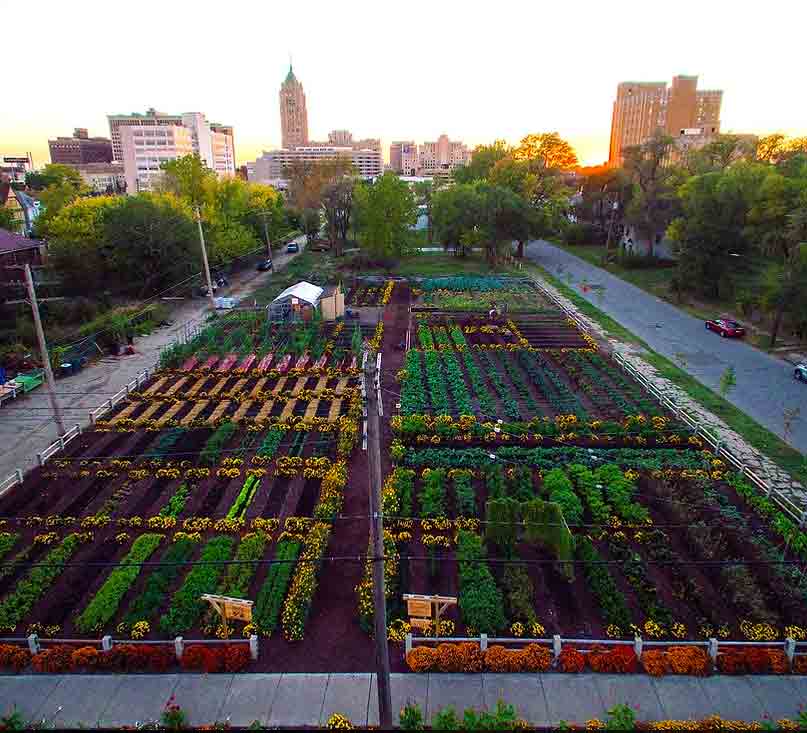3 Acre Urban Farm in Detroit Feeds 2000 Families!

Revitalizing a Blighted Neighborhood: Detroit's Inspiring Urban "Agrihood" Nourishes 2000 Families Close to Home
Detroit, once hailed as the Motor City, is now making a name for itself in a different realm: urban agriculture. In the heart of midtown Detroit lies a neighborhood that has been transformed into a thriving "agrihood" centered around a remarkable 3-acre organic farm and orchard.

The Michigan Urban Farming Initiative (MUFI) has pioneered this unique concept, creating a community build around a shared love for farming and sustainability. Within a 2-mile radius, 2000 families are now benefiting from the abundance of the 3-acre garden, which is home to an impressive array of 300 diverse vegetable varieties, flourishing amidst a lush landscape of 200 fruit trees.

What sets this agrihood apart is the accessibility it offers to its neighbors. Instead of traveling long distances to the nearest grocery store, residents can simply walk down to the garden and obtain fresh, organic produce free of charge. This not only saves them money, but also provides a direct connection to nature's bounty, enhancing their overall well-being. Quan Blunt, the agrihood's farm manager, acknowledges the significant cost savings compared to shopping at large chain stores like Whole Foods.

Established in 2011, MUFI proudly holds the distinction of being the nation's first urban agrihood. While Detroit boasts over 1,400 gardens and farms, only MUFI has successfully created this remarkable community model. The organization's journey has been fueled by the dedication of over 8,000 volunteers who generously contributed more than 80,000 hours to bring the urban "Garden of Eatin" to life. In just the first four years, this inspiring initiative yielded an impressive 50,000 pounds of food.
The harvested produce is either donated or sold to neighborhood households, local food pantries, markets, and restaurants. MUFI's commitment to inclusivity is reflected in its "pay what you can" approach, ensuring that everyone in the community has access to nutritious food. Furthermore, MUFI has ingeniously repurposed a basement of a demolished house into a cistern, collecting rainwater for irrigation purposes, exemplifying their resourcefulness in creating a sustainable ecosystem.
Beyond farming, MUFI has gone the extra mile to enhance the neighborhood's appeal. A once dilapidated building has been transformed into a vibrant community center, serving as a hub for various activities. In addition, remodeled shipping containers provide affordable housing options for farm interns. Volunteers have also contributed to the beautification of the area, creating flower gardens, a captivating children's sensory garden, and a covered pavilion for community gatherings and events.
Co-founder Tyson Gersh proudly shares, "Over the last four years, we've grown from an urban garden that provides fresh produce for our residents to a diverse, agricultural campus that has helped sustain the neighborhood, attracted new residents, and encouraged local investments."
The success of MUFI's agrihood model has inspired the establishment of similar communities, known as "agrihoods," in 90 other cities across the United States since 2011. This ripple effect speaks volumes about the transformative power of sustainable agriculture and the enduring impact it can have on communities.
Detroit's urban "agrihood" stands as a testament to the resilience and ingenuity of its residents, who have turned a blighted neighborhood into a vibrant, nourishing haven. It serves as an inspiring example of what can be achieved when communities come together, nurturing not only their own well-being but also the earth that sustains us all.





